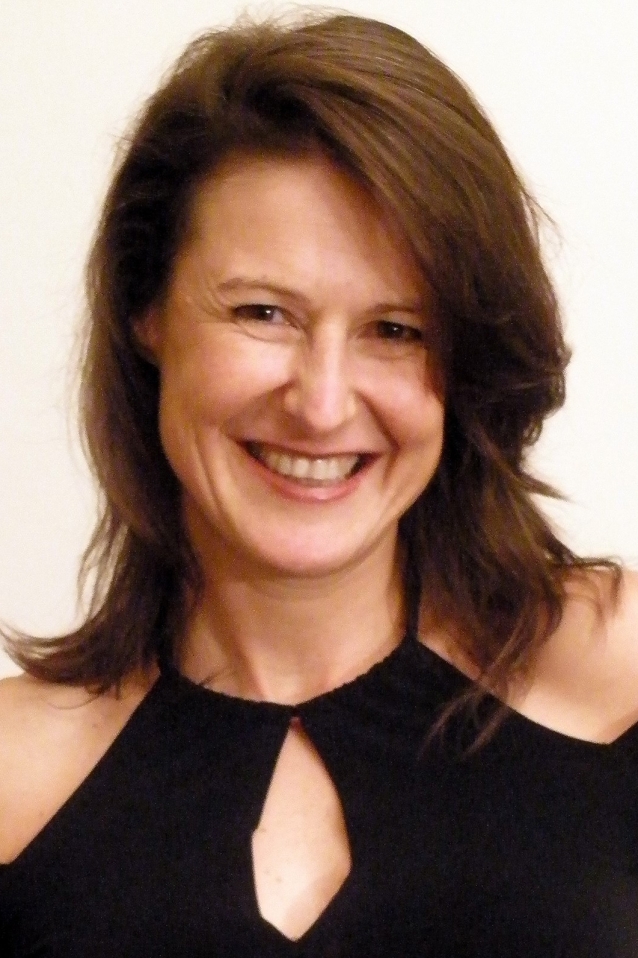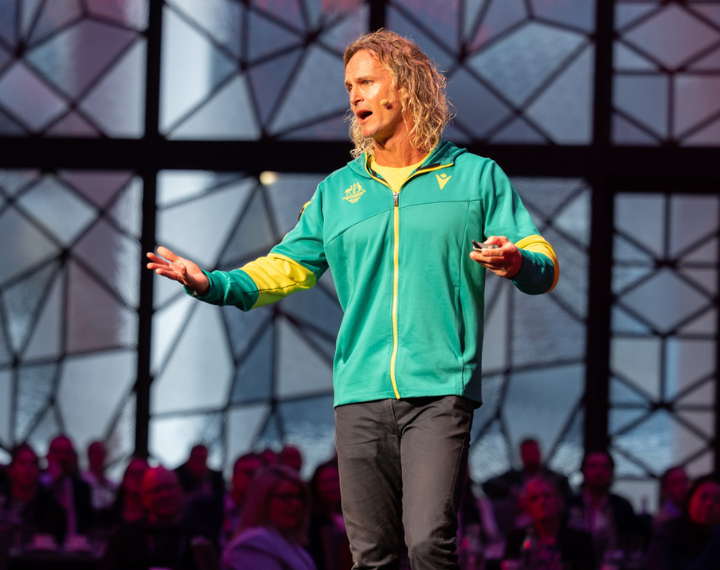Dr Helena Popovic Book as a speaker/entertainer for your next event
Key Points for Dr Helena Popovic
- Dr Helena Popovic is a leading authority on improving brain function.
- She’s the founder of Choose Health – Better Living for Busy People, empowering people to empowering people to live longer, stronger, healthier and happier.
- Author of Search of My Father - Dementia is no match for a daughter’s determination and NeuroSlimming - Let your brain change your body.
- Regular on Talking Lifestyle Radio 2UE Sydney, and 3AW Melbourne. Is a regular guest on Channel 7’s Daily Edition and Channel 9’s Morning Show and Today Extra. She has also featured on Channel 10’s The Project and The Circle.
- Finalist at TEDx Sydney’s Fast Ideas competition, 2017.
Topics for Dr Helena Popovic
- Boost your brain
Most people work on building up and boosting their financial assets. But how many people work on building up and boosting their greatest asset: their brain?The emerging field of neuroplasticity has shown that the brain can change its own structure and function. It can grow new cells, new circuits and new connections in response to what we do, what we think and how we behave.
We are far more than passive victims of our genes: we play an active role in how our brains develop throughout our lives. However most of us are yet to realise the enormous personal power this gives us.
For the brain to stay healthy and operate at its best, we need the right nutrition, rest, stimulation, challenge and reward. Most importantly, we also need to take charge of our thinking because our thoughts play an integral role in wiring our brains for optimal performance.
This presentation distils the essence of the neuroplastic revolution and gives immediately implementable, practical suggestions to improve the functioning of our brain.
- Turn Stress into success
Stress is an inevitable part of life.Intermittent, mild stress is not a bad thing. It assists in building up our resilience and it switches on our adrenal glands to release performance-enhancing chemicals.
However chronic or severe stress has a detrimental effect on our performance as well as on our physical, mental and emotional health. Unchecked stress is a contributing factor in every major illness we suffer and can lead to erosion of brain function, reduced immunity to disease and body fat deposition.
Forty-five percent of Australians experience a mental health condition in their lifetime. Every year one million Australians suffer from depression and two million people suffer from anxiety. The starting point for most of these conditions is chronic stress. Inability to manage stress is the greatest cause of loss of productivity in the workplace.
Turn Stress into Success explains how we can use stress to our advantage and turn stressful events into successful outcomes – personally and professionally.
- Come Alive and Thrive
Peak Health For Peak Performance
Live Longer, Stronger, Healthier And Happier
Elevate Your Energy
Be prepared to get a new lease on life, to re-ignite your spark, and to have more energy and vitality than you ever remember having. This fast-paced, information-packed session reveals the key steps to vibrant health and consistently being at your best.Everyone wants to be healthy and it’s obvious that peak performance requires peak health.
Yet the pace, pressures and demands of 21st century living are actively working against us being healthy. Exhaustion has become the new normal and 80 percent of visits to the doctor could be prevented if we made better lifestyle choices. But how do we make those choices in an already overstretched existence? And what exactly are those health-and-performance-enhancing choices?This presentation cuts through the clutter of confusing and contradictory messages in the media and reveals how great health is not a distant destination but a daily choice.
- Meditate for Mastery
Is your life a playground or a battlefield?
A daring adventure or a series of exhausting obstacles?
Is your work a creative experience or an exercise in damage control?The mind is our most powerful tool and our most forceful opponent. What is the mind in relation to the brain and how do they operate? Could stilling the mind be as important as stimulating the mind? What is meditation and why bother with it?
In August 2004 Time magazine dubbed meditation as ‘the smart person’s bubble bath’. And smart people are definitely taking it up. Meditation is offered in schools, hospitals, law firms, government buildings, corporate offices and prisons (resulting in a 30% reduction in recidivism in the latter). In international airports around the world, specially designated Meditation Rooms are springing up alongside duty free shops and Internet kiosks.
Meditation is simply the experience of mental stillness. Our mind chatter subsides and we are temporarily free of the constant noise of thinking. It’s a wonderful paradox that while seemingly doing nothing, we’re actually doing a great deal: boosting our immune system, reducing stress, slowing down ageing, improving our performance, gaining clarity and increasing our capacity to connect with others. Most importantly, we discover a place of peace within ourselves that is accessible to us at all times.
By the end of this session, participants will experience meditation as more than just a bubble bath. It’s like having a bubble bath while sipping a cocktail laced with Prozac, pain killers, Viagra, blood pressure-lowering medications, omega-3s and performance enhancers!
Mastering our mind is not about forcing ourselves to think positively but choosing to think constructively – or not choosing to think at all. Sometimes pressing the pause button on our thinking enables us to tap into the best solutions.
-
Health Professional Self Care - Do you practise what you preach?
We live in a culture that has confused self care with being selfish. Self care is something we tend to try and fit in only after we’ve fulfilled all our other duties, obligations and responsibilities. This presentation invites participants to think of self care differently: as something that needs to come first – at the top of our to-do list – because it enables us to fulfil all our other duties, obligations and responsibilities much more effectively and with more joy.How can self care be selfish when it allows us to give more?
Is it selfish to service our car? We would think it irresponsible not to. Why don’t we take the same approach with our bodies?
This is easy to grasp intellectually yet self care is often tinged with guilt. Research has found that we feel guilty when we take time out for ourselves because there is always something else we ‘should’ be doing. At the same time, we feel guilty when we don’t look after ourselves because we should be looking after ourselves! It seems that no matter what we do or don’t do, we feel guilty. So we may as well look after ourselves!
-
Let Healing Happen
Let Healing Happen addresses two big questions:
What is the cause of disease or personal crisis?
How do we heal our bodies, our minds and our hearts?Voltaire observed that ‘The art of medicine consists of amusing the patient while nature cures the disease.’
This advice, together with primum non no cere – Latin for ‘first do no harm’ – is often overlooked in modern medicine. Yet it offers profound insights into the nature of healing.
The body has the intrinsic capacity to heal itself – if we let it.
This presentation shows how healing can happen if we change the language of medicine from the vocabulary of war to the language of love. Instead of speaking about ‘fighting the infection’, ‘battling against cancer’ and ‘struggling with weight loss’, let’s care for our bodies, listen to our needs and feel our feelings. In war there are always casualties, whether the battle is won or lost. The same applies when we fight our bodies – even if it’s in the name of cure. Our hearts and bodies will guide us if we remove the impediments in our way.
Healing begins with feeling at peace with ourselves, with our bodies and with life. Healing means accepting ourselves as whole and complete, no matter where we find ourselves. And healing means experiencing wonder, awe and gratitude for life.
Helena shared her mother’s journey with lung cancer and now her father’s adventure with dementia. Her personal and professional experience have taught her to view disease as a doorway rather than a dread. Learn to look for the door that has opened instead of staying trapped behind a door that has closed.
Testimonials for Dr Helena Popovic
Very engaging and entertaining.
St John Ambulance

